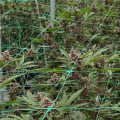Now that you have a property to grow marijuana plants and a facility plan, you'll need to prepare your application for the California Department of Cannabis Control (CDCC). A cultivation license isn't easy to obtain; local and state officials will want you to have your business plan organized and ready to use. No matter what category of cannabis business you want to enter, you'll need to apply for a license. The crop requires a license from the California Department of Food and Agriculture (CDFA).
However, before you apply for the license, you must decide what type you are going to apply for. An adult use license refers to growing cannabis specifically for the recreational retail sector. A medical license is required for the cultivation of medical marijuana. Finally, the CDFA allows a provisional or temporary license.
Unlike other types of licenses, temporary licenses cannot be renewed. To obtain a California cultivation license, you must complete an online application on the California Cannabis Portal. A link to the application, training videos, and other resources for your application will be provided here. Sure there are a lot of moving parts, but if you plan ahead, manage your time, give yourself a little wiggle room for delays, then you should be fine.
Cal cannabis will contact you if your request is incomplete. You might have to do it again. You may need to review a couple of things, but as Jim said earlier, the state departments want to help you. As long as you are doing everything accordingly and are on board, they will take the time to help you get a full application and issue you a license.
We offer this service to help cannabis investors and entrepreneurs drive their goals of obtaining a cultivation license in California. With the California cultivation license, you are only allowed to grow cannabis for medical use. In such cases, cannabis companies interested in obtaining a cultivation license may be chosen on a first-come, first-come, first-served basis, or through a merit-based selection process. Hello, we're Dominique and Jim and we're both going to explain how to get your annual state cannabis cultivation license.
Cultivation goes one step further, as there are extensive local and zoning ordinances that apply specifically to this type of cannabis business. Cannabis investors and entrepreneurs should anticipate spending time and money on a cultivation construction that meets permit requirements. MCSB: Acronym for Manufactured Cannabis Safety Branch, this is a CDPH branch that handles all licensing and compliance with the cannabis manufacturing law. Specialty Cabin License applies for mixed-light cultivation of up to 2,500 canopy areas, up to 25 mature plants outdoors, or up to 500 square feet of canopy for indoor cultivation, in each case in one location.
So I guess in the future, before you decide if you want to grow cannabis in a certain area, it might be something you want to look at if you don't want to bear these costs. Getting approved for a cannabis cultivation license will not only require a business plan, but also a full site plan with diagrams and management plans. Distributor (transport only): Also referred to as a type 13 license, distributor (transport only) licensees can transport cannabis products between licensees and are restricted to transporting only cannabis products. Therefore, it is very important that cannabis investors and entrepreneurs looking to obtain a cultivation license in California engage residents in their neighborhood.
CDFA, an acronym for the California Department of Food and Agriculture, is the state regulatory body that oversees the commercial cultivation of cannabis. If you intend to obtain a state cannabis grower's license, you need a specialized and experienced California marijuana business lawyer on your side. Specifically, the Manufactured Cannabis Safety Branch of CDPH handles all licensing and enforcement of manufacturing compliance. .
.






